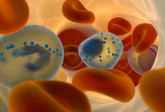Biosimilars/Research
Obstacles to the use of biosimilars in the US
Professor Richard G Frank from the Department of Health Care Policy, Harvard Medical School, Boston, USA, discusses factors that may account for the slow development of competition in the market for biosimilars in the US [1].
Strategies for development and validation of neutralizing antibody assays supporting biosimilars
A biosimilar is a biological product with equivalent safety, purity and potency as an originator reference therapeutic. As such, US Food and Drug Administration (FDA) and European Medicines Agency (EMA) guidelines have stepwise recommendations to demonstrate biosimilarity, which include immunogenicity assessment.
Biosimilar policies in Europe
Across European countries, differences exist in biosimilar policies, e.g. pricing and reimbursement procedures, levels of education, characteristics of covered population and incentivization of stakeholders, leading to variations in uptake of biosimilars and divergences in savings from biosimilars use. Experiences from different European countries with biosimilar policies may offer useful insights into current and future uptake of biosimilars.
Etanercept biosimilar SB4 less immunogenic than Enbrel
A research letter published in the British Journal of Dermatology suggests that the biosimilar etanercept SB4 is less immunogenic than the originator product, Amgen/Pfizer’s Enbrel (etanercept) [1].
Government policies to maximize social benefit of biosimilars in countries with restricted access to biologicals
The potential value of biosimilars is dependent on patient access to originator biologicals in a given country. If the originator biological is reimbursed without any volume and access restrictions, the main objective of using biosimilars is to generate savings in health expenditures without compromising health outcomes. This disinvestment scenario is mainly applicable for higher income countries. If the original biological product is reimbursed with volume and access restrictions, the main objective of biosimilars is to treat more patients from the same healthcare budget, and hence generate more health gain. This special investment scenario is applicable for lower income European Union (EU) Member States and other middle-income countries. If the originator biological is not reimbursed at all, more affordable biosimilars may create an opportunity for public reimbursement, however, incremental budget is needed to generate more health gain. This investment scenario is applicable for low-income countries [1].
Yoshindo and Lupin’s etanercept biosimilar completes trials
YL Biologics announced on 7 February 2018 that the global phase III trials of its etanercept biosimilar have been a success. YL Biologics is a joint venture of India’s Lupin Ltd and Japanese firm Yoshindo that was first announced in 2014 [1]. The etanercept biosimilar has met a successful outcome for rheumatoid arthritis treatment and hopes to compete for a share of the originator Enbrel’s global market of US$11 billion.
PK and PD comparison between rituximab biosimilar RTXM83 and rituximab in diffuse large B-cell lymphoma patients
A requirement for registration of a biosimilar is to demonstrate pharmacokinetic (PK) similarity with the reference product. A population PK model approach is an excellent method for assessing PK similarity, in contrast to the classical one, because it allows comparison of PK properties through the inclusion of sparse data that improves the power to detect any potential differences between the biosimilar and the reference product. Furthermore, the population approach allows quantification of the inter-product and inter-subject variability of PK parameters and identification of covariate factors (demographic, pathophysiological, environmental or concomitant drugs) that influence drug availability [1].
Follow-on biologicals and extrapolation in Brazil
Researchers from Brazil discuss the country’s approach to follow-on biologicals and extrapolation of indications in the country [1].
Biosimilar policies around the globe
With the authorization of an increasing number of biosimilars, and the prospect of multiple biosimilar switching, biosimilar naming and the importance of this for pharmacovigilance are coming into sharper focus. Authors from around the world considered various biosimilar issues/policies in different countries and regions [1].
Use and cost of biologicals for cancer treatment in Southern Italy
Oncological-targeted therapies, both biological and non-biological, represent a significant clinical and economic burden in routine care and have a major impact on the sustainability of National Health Services. With this in mind, a study by Lucchesi et al. investigated the use and costs of these targeted therapies for cancer treatment in the general population of Southern Italy during the period 2010−2014 [1].













